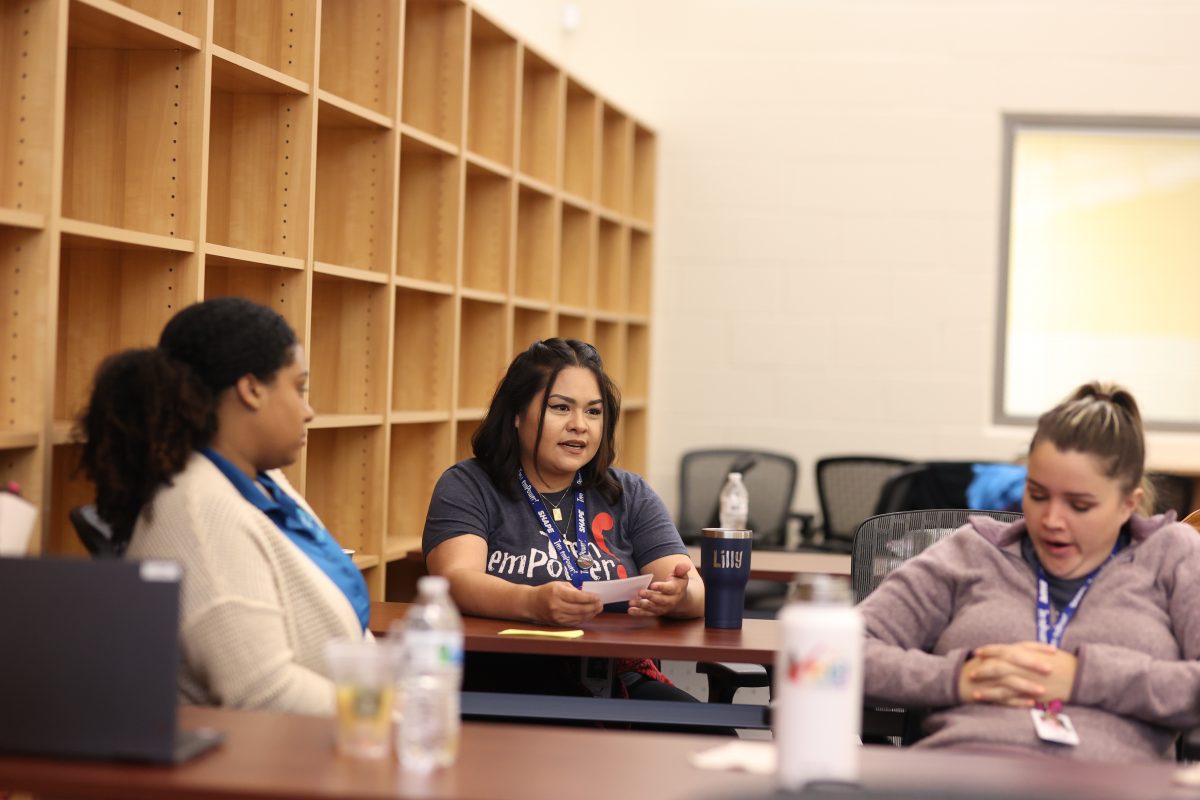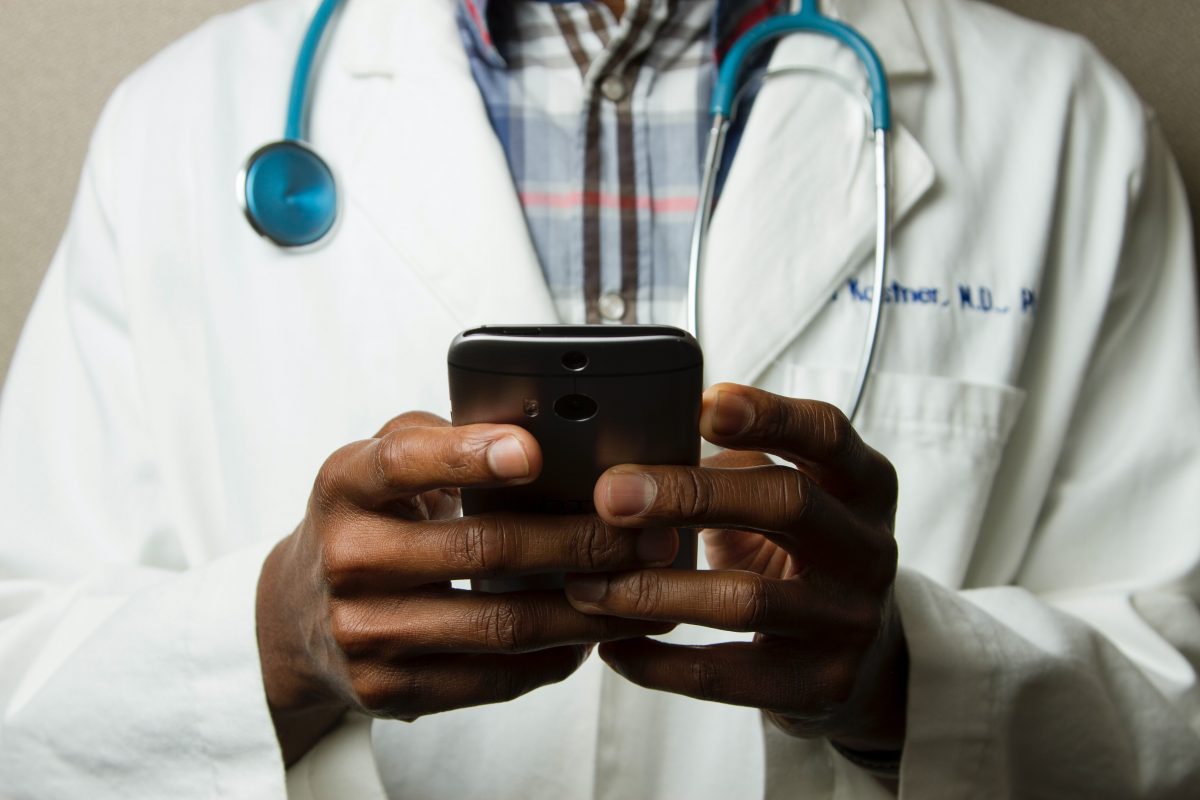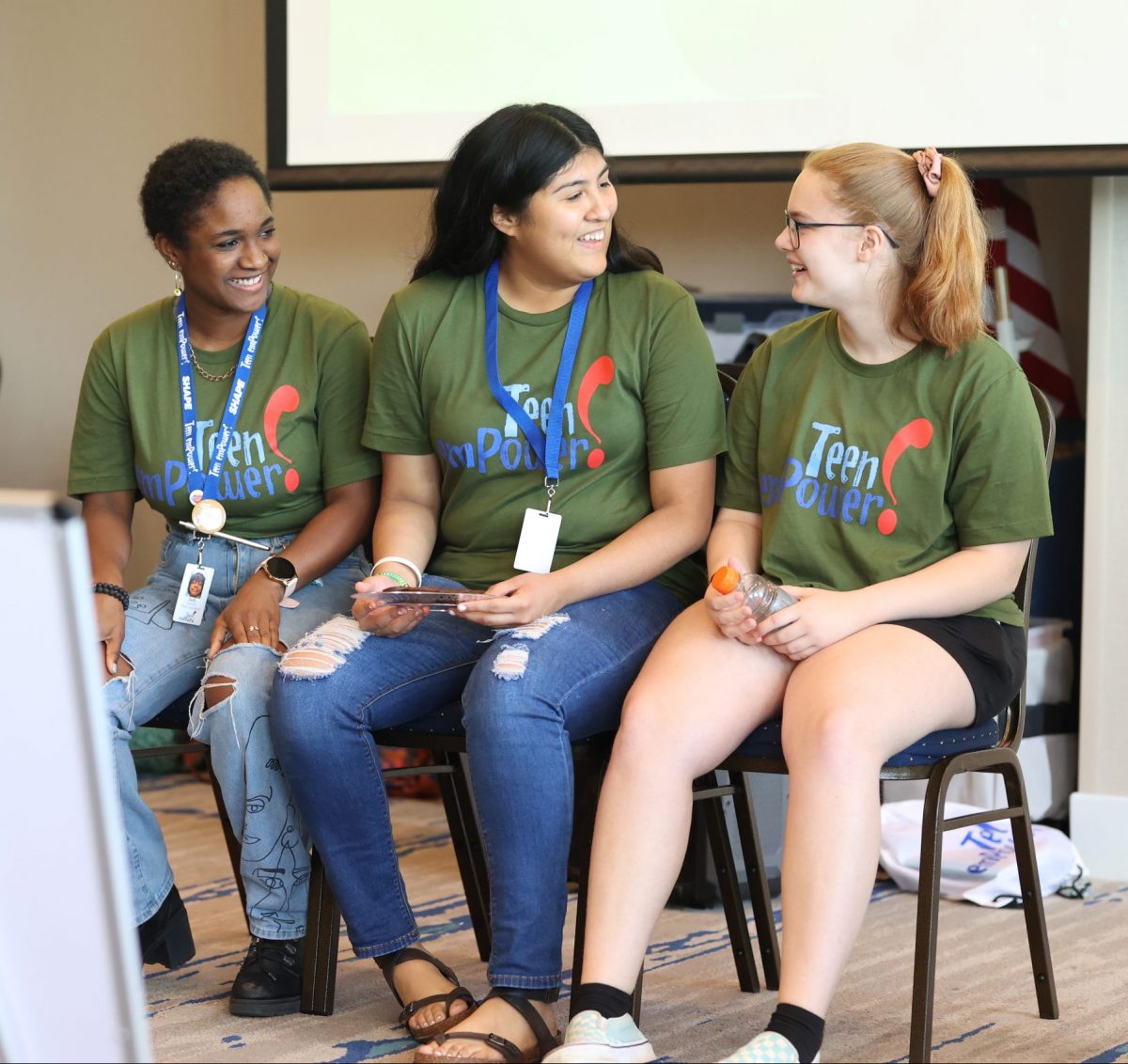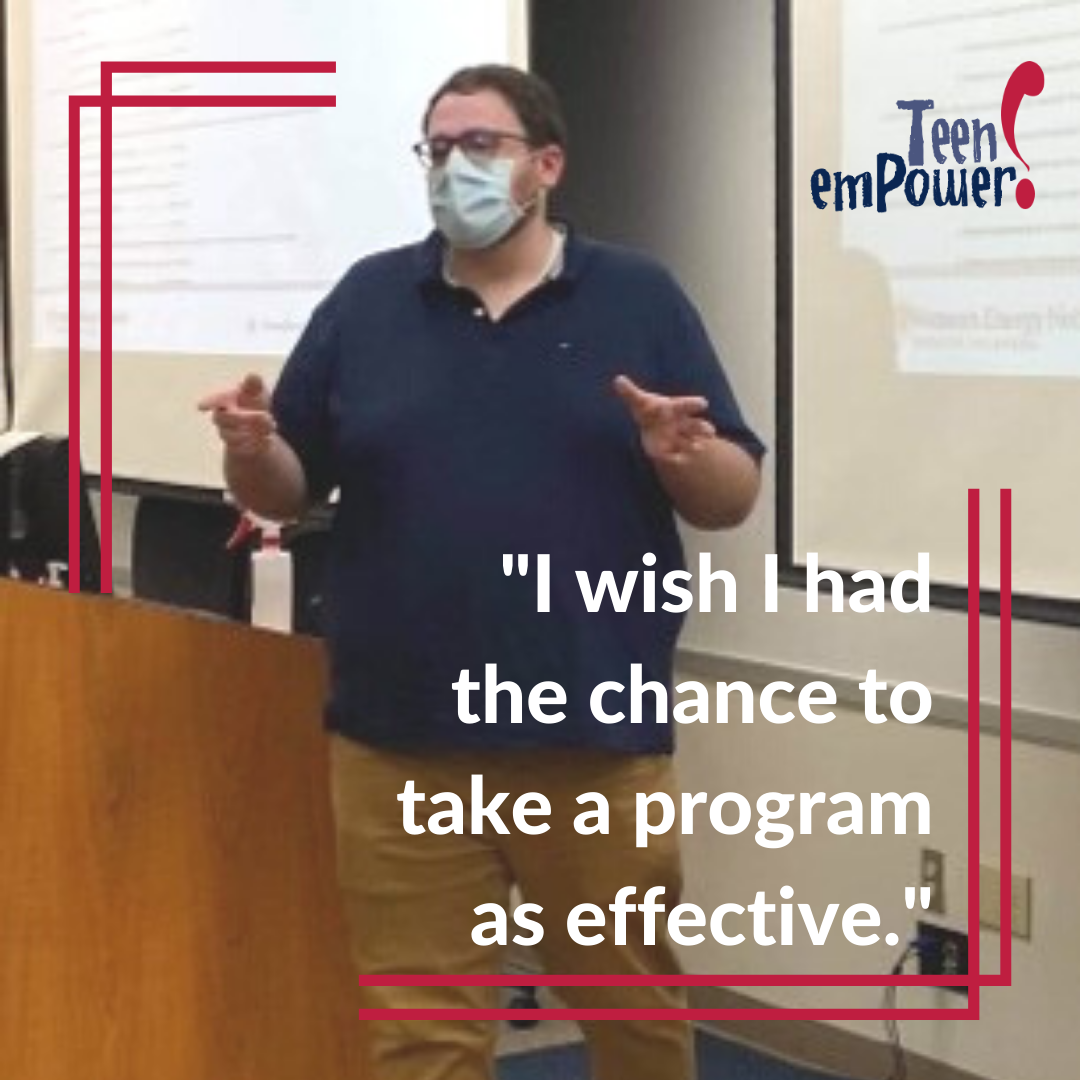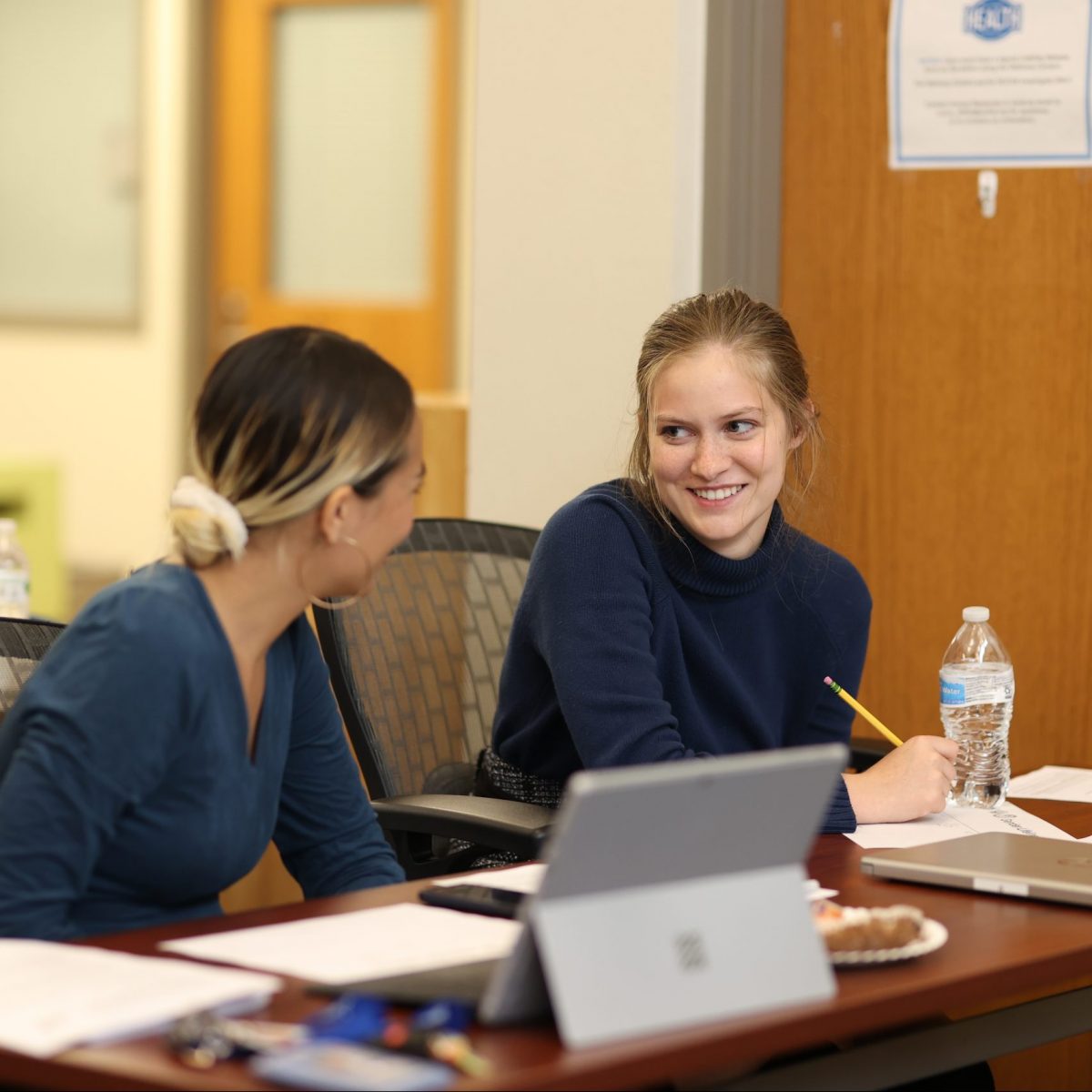Posts by Lillian Bocquin
Developmental Assets and Why They Matter
Lead Author: Aicha Diop
I had just finished my teaching session and we were going around the room talking about what we learned. One student raised their hand and said, “I learned I can say no.”
Admittedly, I was taken aback because of the many layers this answer carried. In that moment I realized I not only gave students the tools to make healthy decisions for themselves but unlocked the knowledge of what it means to have bodily autonomy.
I was humbled to hear that I was so influential, but at the same time, saddened to hear they didn’t know they held those tools the whole time. It was a strong reminder how much of an impact educators, mentors, parents, and neighbors can have in helping youth build their personal strengths and assets.
This type of impact can be identified as Asset Building. In short, asset building is when adults support the development of youth by building up positive aspects of the community and social environment.
Summer 2022 the Teen emPower! staff, myself included, completed a training by the Search Institute called Essentials of Asset Building. We began the training by learning what assets are essential to youth success. These Developmental Assets are “positive experiences and qualities that all of us have the power to bring into the lives of children and youth.” They have identified 40 assets split into external and internal categories.
External Asset Categories:
Support, Empowerment, Boundaries and Expectations, and Constructive Use of Time.
Support assets can come from a variety of sources, and might look as simple as talking to your child about their day at the dinner table. Empowerment assets can also come in many different forms, like the community valuing youth success or creating an environment where youth can feel safe. Young people also thrive in structure and that is where boundaries and expectations come into play. Setting clear expectations for youth at home, at school, and in the community will help create that safe space for them to succeed. Additionally, young people can gain a lot from assets that are a constructive use of time. This could look like creating after school programs or other opportunities that build tools for youth success.
Internal Asset Categories
Commitment to Learning, Positive Values, Social Competencies, and Positive Identity.
Commitment to learning is an asset category focused on understanding that learning is important. It might look like motivation to do well in school or reading for pleasure. It’s also important that they believe in their abilities. Positive value assets could be defined as the development of a moral compass. In order to interact well with others, young people also need to develop social competencies. Examples of how to build these assets include understanding and being accepting of their peers from different cultural backgrounds, or being able to resist peer pressure to drink under age. Lastly, there are positive identity assets, which is how youth view themselves – their self esteem.
Understanding and utilizing these assets can improve the lives of our youth. They help us refocus our programs, like SHAPE, on how we can keep young people at the forefront of our decision-making and implementation processes. The 40 developmental assets reinforce what we here at Teen emPower! already know to be true. Young people need trusted, encouraging adults to thrive, and this will directly affect the future of our communities.
Anyone can be an asset-builder, starting right now.
The Real Life of a ‘Sex Ed Teacher’
I was scrolling through Facebook when I came across a post that read, “Ask your child what you do for a living and see how they respond.” My curiosity took over so I called for my 8-year-old.
“Mario, when people ask what I do for a living, what do you say?” Nonchalantly he answers, “That you’re a sex worker.” I almost died laughing but we continued the conversation and I asked him to explain. Again, very casually he replies, “You teach people how to say penis and vagina…”
This story brings a lot of laughs, and I’m sure I’ll remember it for years to come, but it made me think about how others perceive the work we do at Teen emPower!. I sometimes find it convenient to say, “I’m a sex education teacher,” which usually prompts people to say something along these lines:
- “Oh you teach kids how to put condoms on! Do you use a banana?”
- “You teach people how to have sex?”
- (Or, as my cousin incorrectly introduced me at a party once) “She’s a sexologist.”
This is mostly incorrect. I’d like to tell you what I really do and why it’s important.
I’m an adolescent health educator which means I teach middle schools and high school students adolescent development. For example, I teach subjects like brain development, puberty, reproductive anatomy, abstinence, contraceptives, consent, responding to risky behaviors, setting goals and boundaries, and other skills that provide students with the tools they need to make a healthy transition from adolescence into adulthood. I work with people who are passionate about helping youth and fulfilling our mission in the communities we serve.
Telling people that I’m “just a sex ed teacher” does a disservice to describing our work because we do so much more than just teach people how to say penis and vagina (although Mario is right about that. We teach people these words are medically accurate and should not be considered shameful.).
We teach using evidence-based programs, which means we use medically accurate, age appropriate information that has been researched and developed with skills, knowledge and core concepts in a sequence that’s been proven to work. We are trained in various programs and teaching methods that help us provide the best classroom experience. Our work is not only needed in the communities we serve, but also vital to all Oklahomans as this state has one of the highest teen birth rates in the country.*
According to the CDC, teen pregnancy costs taxpayers an estimated $9.1 billion dollars annually nationwide. However, we are not only preventing teen pregnancy, we’re also combating other issues in the community including: poverty, school drop-out rates, sexual abuse and victimization of young people, as youth participation in risky behaviors correlates with these and other community concerns.
So while I don’t stand in front of a gym full of students and rehearse Coach Carr’s famous line from Mean Girls, I do stand for the future of our youth. I can empathize with the difficult experience many teens face and hope my work helps parents and guardians in areas where they may need support, knowledge, and skills to help their young ones thrive.
As a former teen mother myself, I understand, first-hand, the importance of the work we do and the difference it makes in the lives of youths and our communities.
“Education is for improving the lives of others and for leaving your community and world better than you found it.”
Marian Wright Edelman
Written by: Cristina Flores, Teen emPower! Inc. Health Educator
Pro-Prevention Sexual Health
If you have attended many sporting events, you have likely seen the athletes warming up prior to the game. They do this to prevent potential injuries. No one argues whether this is unnecessary or good because, of course, keeping players healthy and safe should be a priority.
Teaching pro-prevention sexual health is the same. The goal is to take steps to prevent unintended consequences or outcomes that could be harmful to one’s health and well-being. When people realize sexual health education helps protect young people from preventable outcomes, it makes perfect sense. However, some people don’t know what a pro-prevention program looks like, so we’re going to review a few pro-prevention teaching ideas, why they are needed, and how effective these programs can be.
Unintended outcomes due to teen sexual activity might include pregnancy, sexually transmitted infections (STIs), and unexpected or unwanted emotions. One way to prevent these unintended outcomes is through medically accurate and age appropriate education. Pro-prevention sexual health education includes learning about the biological changes, emotional influences, and social pressures that occur during adolescent development. The goal of sexual health education programs offered by Teen emPower! is to provide youth with accurate, unbiased information they can use to make healthy decisions for their future. They need to learn about their bodies and be able to protect themselves from unintended outcomes so they are prepared if/when they make the decision to become sexually active.
If understanding the fundamentals of a sport and having access to protective equipment is important to the well being of athletes — then understanding the fundamentals of sexual health and having access to protective equipment helps the well-being of young people, too.
Everyone needs this information, especially adolescents. In 2011, the Centers for Disease Control and Prevention (CDC) reported the percentage of unintended pregnancies was 45% overall, with 75% of pregnancies being unintended among teens aged 15-19 years. In 2018, the CDC estimated 1 in 5 Americans age 15 and older had an STI. These two statistics demonstrate a need in our community that is not fully being met. Unintended teen pregnancies can cause lower graduation rates, bring financial hardship, and create emotional distress. And although some STIs can be cured, others can have life-long implications.
Pro-prevention education is a key to positively impacting our youth, and Teen emPower! is a champion for that change in Central Oklahoma. Colorado has been a leader in the United States for implementing pro-prevention programs and guess what? It’s working. Although the state does not require sexual health education to be taught in schools, it does require sexual health education to be comprehensive, inclusive, and to cover consent when taught. Conversely, states that require abstinence-only education in schools typically see higher STI rates in their communities.
Let’s take it back to sports for a moment. When a gymnast prepares a new skill, a spotter should be present to prevent a harmful fall. Our programs and educators are like the spotter. They provide trusted adults to teach topics such as understanding reproductive anatomy, abstinence as a sure way to avoid unintended outcomes (when used properly), the characteristics of healthy relationships, and how to remain as safe as possible when engaging in sexual activity. With the right spotter in place, an athlete will eventually be able to recognize the safest moves on their own, as will the adolescents who receive effective sexual health education.
A sexual health education program, specifically one with a pro-prevention focus, empowers individuals to take control of their lives and stay healthy. While there are organizations promoting pro-prevention education in other states, Teen emPower! provides this effective and much-needed type of sexual health education right here in Oklahoma. And we do so proudly without judgment or shame.
We invite you to “suit up” and join our pro-prevention team! If you are interested in supporting our organization, you can find us on Facebook, Instagram, and twitter. Our website can be used to further explore our program or make a donation. With your support, we can run the right plays and tackle unintended sexual health outcomes.
The Stigma of Sexually Transmitted Infections and How It Affects Oklahoma
There is an epidemic in Oklahoma that does not receive much media attention:
sexually transmitted infections (STIs).
“Don’t you mean STDs?” readers may ask. The use of the word “disease” has actually contributed to misinformation surrounding STIs. The Merriam Webster definition of the word disease includes the phrase “is typically manifested by distinguishing signs and symptoms.” Whereas, the definition of infection does not state there will be signs and symptoms. This makes infection a more appropriate term since STIs do not always show up as visible signs on or in the body. In fact, STIs can cause serious damage before there is any potential sign of an infection.
If an STI does show up on the body, the physical signs might be different from person to person, and they might not be prevalent or continuous. Some examples include:
- Chlamydia, which can take from one to three weeks for symptoms to show up from initial contact.
- Herpes, which flares up in episodes, meaning symptoms will come and go.
- Syphilis, which can damage internal organs over a number of years, undetected.
- HIV, which may appear as simple as the flu, but more severe symptoms and irreversible damage may not occur for ten years or more.
The common lack of signs and symptoms, combined with stigma, increases the risk of spreading STIs, especially when people use denial as a strategy for managing their sexual health. Reducing infections relies heavily on sexually active people getting tested – even when they ‘feel fine’.
The American Public Health Association has reported that STD-related stigma was associated with a decreased likelihood of being tested for gonorrhea or HIV. When people fear getting tested there is a potential for fewer infected people to get diagnosed. If people who are infected are not aware of their infection, it directly affects the lives of Oklahomans. In 2020, Oklahoma had the eleventh highest rate of chlamydia infections, fifth highest rate of gonorrhea infections, and fifth highest rate of congenital syphilis infections.
Misguided phrases about who can get STIs and how people contract infections contribute to the stigma since they are incorrect and harmful to those individuals who are labeled. “Only certain people can get AIDS,” is an example of a phrase so misinformed that it is detrimental to our communities’ understanding of STIs. No one “gets” AIDS from another person. Acquired Immune Deficiency Syndrome, or AIDS, requires that someone already has HIV and their CD4 cell count has dropped below a certain level. Only HIV can be shared and only HIV can progress to AIDS, but not everyone who contracts HIV will acquire AIDS.
Ultimately, anyone who has sex,
especially unprotected, has the potential of acquiring an STI if their partner is infected.
STIs do not discriminate.
The stigma behind STIs in Oklahoma stems from the lack of accurate communication on the subject and the lack of sexual health education in schools. Conversations about STI testing, resources, infection status, and barrier methods all reduce the risk of infection. But these conversations aren’t happening when people aren’t aware of the risks. When there is not quality sexual health education, we miss an important opportunity to provide STI prevention knowledge.
Sexually transmitted infections are preventable. To destigmatize STIs and lower the rate of STIs in our state, we need high quality, medically accurate sexual health education available for all young people. We need to open up conversations in and out of school and disrupt the taboo nature of this subject. The well-being of thousands of Oklahomans depends on it.
Written in conjunction with Katia Harms.
SHAPE Retreat 2022
Each June, Teen emPower! hosts a retreat for high school students who will be our peer educators for the SHAPE (Sexual Health And Peer Education) program in the coming school year.
The newcomers, freshly recruited each spring, get a better understanding of the program and the expectations for being a peer educator. The returning members get the chance to enhance their leadership and team-building skills, all while engaging with sexual health professionals and guest speakers throughout the week.
It’s an excellent opportunity for the youth to connect with adults who work with health-promotion efforts in the community and their peers from other schools. It’s a week-long dive into sexual health topics and presentation skills. It’s a bit of their summer that these outstanding young people choose to dedicate to improving the health of young teens in our community. The SHAPE retreat always leaves students, staff and our volunteers feeling refreshed and ready to advance our collective mission of empowering, motivating and educating youth.
This year’s SHAPE retreat featured a public health professional, Christina Eskridge, MPH, who is also an actor and director. She combines theater and health, and facilitated lessons for the peer educators on the importance of storytelling as a strategy for health promotion and teaching about health with creativity and confidence.
“The SHAPE program is incredible and so supportive of both the peer educators and the students they work with. I’m honored to have been a small part in such an innovative and successful program and week-long engagement with young people!
Christina Eskridge, Founder and Executive Director of Elevate Theater for Health
You all truly thought of everything, from the snacks and hygiene kits, to the detailed agenda and wonderful guest speakers. Not only did I have a blast working with the students, but I also truly enjoyed learning from them and the other facilitators. I’m truly humbled by the impact you all have, and this world is lucky to have each of you.”
To help the peer educators learn the skills they will use presenting SHAPE lessons in the classroom, speakers at the retreat include experienced middle school teachers, college professors, nonprofit directors and public health professionals. They help educate our students on the importance of preparing for your class, engaging students in the lessons, finding confidence in your body language and general classroom management. They also educate our students on overall sexual health topics, providing one of the most important lessons in life which is also a Teen emPower! mantra: knowledge is power.
The peer educators always enjoy their time together and many use the skills they learned during the retreat in other organizations and activities outside of SHAPE. Through the activities and group presentations they are tasked with preparing, they develop cooperation skills and learn how to communicate effectively.
“I love everyone here so much! I felt very loved and cared about all week, and I feel like I learned a lot about stage (speaking) presence and about sexual health in general!”
2022/23 Peer Educator retreat participant
The annual SHAPE retreat is a meaningful time for Teen emPower! because it kick-starts the peer educator experience for the year. The students are from various schools in Oklahoma City, Del City and Midwest City, and they come ready to help other young people make healthy life choices. Their decisions and actions, starting with attending retreat, carry an impact into the community by helping educate other youth about skills and sexual health knowledge that is important now and for a lifetime.
Check out the highlights on our SHAPE instagram page to see the activities from SHAPE Retreat 2022!
What Sexual Health Education is like in Other Parts of the World
Have you ever wondered what sexual health education is like in other parts of the world?
Part of our employee training at Teen emPower! is to understand how cultural and environmental impacts can affect students who we teach, and what or how they learn. So we often think about and discuss what sexual health education is like in different parts of the country, and even what sexual health education is like in other parts of the world.
The family of one of our employees is from Guinea, West Africa, and she has lived with her cousins who experienced drastically different exposure to sexual health information growing up. It’s common for families there to send their children to the United States for an education, so her cousins joined a new cultural environment through this blended family experience.
The American side of the family had plenty of talks about puberty and physical/emotional changes while growing up. But the cousins from Guinea… not so much. It wasn’t until the cousins from both sides moved out of a parent-led home that the lack of sexual health education really showed how damaging it could be to someone’s overall health and well-being.
With several college-aged women living together, subjects like periods, cramping, and gynecological visits were open topics of conversation. One Guinean cousin had suffered from terrible cramps since she first started menstruating, and when asked why she had never visited a gynecologist, she simply responded with, “I don’t want to lose my virginity.”
This cousin explained that things like receiving a pap smear or using a tampon would cause someone to “lose their virginity.” Which begged the questions that followed, like, “What is virginity?” “Do you know what your uterus is and what menstruation is?” “Do you understand how birth control works and what it can do for you?”
The West African natives’ only answers were, “I don’t know but I heard birth control makes it to where you can never have kids.” In Africa, Imams (prayer leaders) are the basis of most education. What little sex education exists there is provided by Imams, which is where the cousins learned their misinformation.
“It was then I realized that there is a very large portion of the world being denied comprehensive sex education. We spent hours in our living room debunking all of these misconceptions they were talking about and why they weren’t true. It was a tough conversation to have, but obviously needed.”
Aicha Diop, Teen emPower! Health Educator
This being said, available and provided information in Africa may vary, just like it varies across the United States, and just like it varies across other parts of the world. Comprehensive sex education is critically important for our youth. While the importance of it is still something we are working to help people understand, it is increasingly becoming a more supported idea.
Sexual health education that is comprehensive goes beyond sexually transmitted infections (STIs/STDs), condoms, and birth control. It also involves teaching youth about their anatomy—specifically using medically accurate terminology to explain what is happening to their body—so they know what to expect and how to take care of themselves. It provides a reliable resource for young people to reference for the rest of their lives. To allow young people to believe that they cannot seek out quality care for fear of losing their virginity, or to live their life unknowing of their own bodily processes, is a huge disservice to each of them and to the future of our society.
That is why programs like ours are vital to the optimal health and overall well-being of the communities we live in. We know what can happen when people are deprived of knowledge, and it’s not the future we want for the next generation.
Story by: Aicha Diop
My 7th Grade Students Learned ALOT
“To whom it may concern,
“I have had the privilege of hosting Teen Empower in my 7th grade science classroom the past two weeks. They have already had an enormous impact on these kids, and their knowledge about their bodies and the decisions that will face them have been improved substantially. It was uncomfortable for some of them (and they told me as much), but they also said they learned a LOT.
“COVID has had a rough impact on my students. They have largely been away from the social interactions normal students would have for the past two years. As such, their social and emotional maturity is often lacking. Their physical maturity, unfortunately, keeps marching onward. I already know these kids are starting to be faced with decisions way beyond their years. Ones that rob them of their own agency and power. This course allows them to know the consequences that face them, make informed decisions, and take the power back so they can live the life they want to live.
“I didn’t have the same type of sexual health education as a child. It was more shame and fear based, causing us to fear an essential part of our humanity. I wish I had the chance to take a program as effective as SHAPE. It would have helped instill in my the knowledge and self confidence that I can take power over my sexual health and not fear it.
“I appreciate all that Kathy, Zoe, and Katia did for my class and for me. The students won’t forget the lessons they learned. It is my earnest hope they incorporate said lessons into their lives well past their adolescence.”
Colton Birch, Taft Middle School, Oklahoma City
Teachers like Mr. Birch care so deeply about the well-being of their students. The impact teachers and other trusted adults have on young people is palpable, and it is evidenced in the students’ success, even when often the odds are against them.
Our mission is to educate, motivate and empower students to make informed decisions on their sexual health. Part of what makes that possible is the supportive and encouraging staff at the schools we serve.
If you would like to support us within the community, follow us on Facebook and Instagram, and subscribe to our newsletter.
If you would like to support us financially, you can donate here.
How’s Work Going at Teen emPower?
Author: Lillian Bocquin, Teen emPower! Health Educator
It all starts with a simple question that most people have asked or have been asked at some point in their life: How’s work going?
Good. Fine. Alright. My boss is a real- we get the picture. Work isn’t always what we want to talk about. Unfortunately, this is because most people don’t get to work for an organization directly impacting lives today and the community of the future.
What if instead, we answered it like this:
Work is amazing. It hardly feels like work half the time because I get to spend every day doing what I love: teaching kids about some of the most meaningful decisions they will ever make.
Work is always fun for a sexual health educator. It’s amazing that many people grow up not learning about their bodies, but I’m happy that we get to be a part of a movement changing that.
Work was especially exciting today since we brought on yet another team member. Teen emPower! was started by a single, brave leader nearly 20 years ago, and now we’ve got a whole organization of educators, students, volunteers and administrators. The growth has been outstanding and incredible to witness.
Thankfully, these are the wins that we have celebrated at Teen emPower! over the last several years. Growing from one woman to a team of 11. Redefining our mission statement and values to reflect our efforts and intent more concretely. And even redesigning our website to provide an exciting and polished description of our programs and resources.
Our mission is to empower, educate, and motivate adolescents to make informed decisions for their sexual health.
We have been working tirelessly over the first year and a half of Project REACH to expand quality school-based sexual health education and lower the teen birth rates in Oklahoma County. While tackling any unexpected circumstances to the best of our ability. Reaching students during the start of the pandemic proved to be difficult, but not impossible for our flexible and resourceful team. As we developed and adjusted to virtual education options, there was hope of returning to the classroom as early as March of 2021. Our goals for Year two of Project REACH include teaching 3,250 students from six schools within three districts.
Our leadership set these lofty goals not only because we know our team can achieve them, but because our youth deserve this education. Comprehensive sexual health education makes a difference in the current lives of students, but many people don’t recognize the long-term impacts. When we teach young people how to consider their future, communicate in relationships, respond to pressure, and understand the possible outcomes of their decisions, we set youth up for success in all aspects of life.
So if you must ask us, “How is work going?,” well, it’s great! Because we are Teen emPower! Inc., and we are helping young people make healthy life choices.


